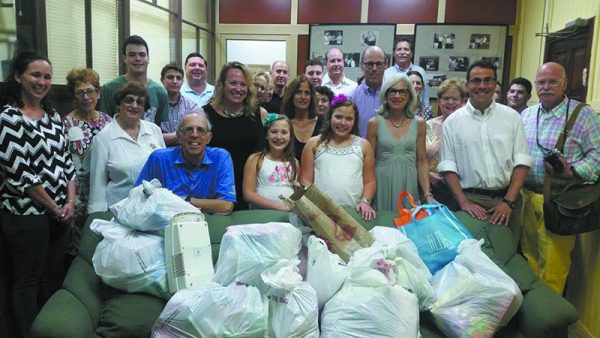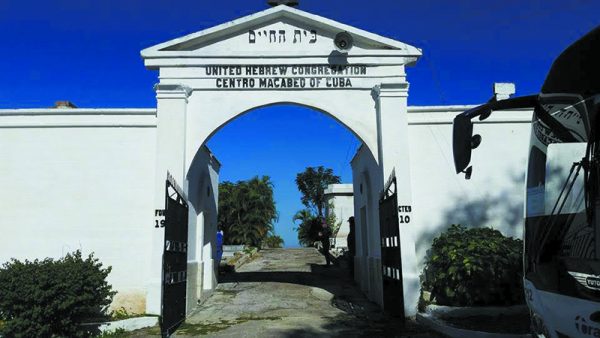
By Matt Smith
There is an old Hebrew saying, which stems from an early 20th century Zionist folksong: “Livnot uI’hebanot.” Translated into English, this saying means, “To build and to be built by it.” You may also know this saying: “It’s better to give than it is to receive.” However you know the adage, we’re sure you can agree it’s one to live by. And it’s certainly one Rabbi Jonathan Jaffe of Temple Beth El of Northern Westchester kept in mind this past winter when he sojourned to Cuba with a group of congregants for a project in community outreach.
“I think that for every generation of American Jews, there has always been an inspirational challenge to rise up,” explains the Rabbi. “[And as] I believe the theory of [Jewish American historian] Jonathan Sarna points out, my generation of American Jews is at a loss because of a lack of a challenge that way. We don’t have some all-encompassing, inspirational task to which we can dedicate ourselves.”

Given this fact, the Rabbi took it upon himself to create one for the people of his congregation. He turned his attention toward the tumultuous relationship between the United States and Cuba, which he saw as an opportunity to heal wounds–“an amazing goal to center the congregation around”–and a way to “fulfill that need” for a present-day, inspirational challenge by giving back to the Jewish population in Cuba.
And so, the trip was constructed under the auspices of “bringing supplies and donations to the needy populations, especially the Jewish populations, in Cuba.” The group of congregants, which totaled around 25 people of various ages, brought in over 2,000 pounds of supplies–medical, hygienic, dental, and school/office–and donated an additional $2,000 to various Jewish communities throughout the country.
While there’s no doubt he enjoyed his time in Cuba (the group took part in walking tours, scuba diving, music and food), the Rabbi admits that, during the trip, his eyes were opened to how much the country is still struggling culturally and economically– and found that especially humbling when he found himself without his American luxuries.
“It’s hard to lead a synagogue trip when you can’t use a credit card or cell phones,” the Rabbi acknowledges. “And that’s [the case because] the bureaucracy and the limited markets available make things very difficult at times.” Additionally, he notes that “not only did they not have cell phones, but even the nice hotels don’t have voicemail [systems available] in the rooms. So, if you wanted to contact someone, you went downstairs and you had someone write down a note and go up and slip it under the person’s door. It felt like we were stuck in the Stone Age from a communication standpoint.”
Rabbi Jaffe was also particularly struck to see the lack of resources firsthand–and the impact the loss had on the town’s residents. “We were walking around the very small town of Trinidad,” the Rabbi explains, “and [we had] a college student [who] was drinking out of his Gatorade bottle… and a man approached him and asked if he could have the [Gatorade] bottle because he needed something to feed his child milk. They don’t have baby bottles. It makes you realize how privileged we are.”
Considering this overall American privilege, and the relationship Cuba has not only with America in general, but specifically, the Jewish people, Rabbi Jaffe comments that he felt the trip “was an amazing experience in Jewish peoplehood.”
“We share a common bond, a common history, a common ancestry, and that wherever you go in the world, you can always find a Jewish population and [know] that you’ll be treated as an insider rather than an outsider. And that it’s this beautiful global aspect of Judaism, in that you have to leave your community and your shell in order to experience that.”
Observing how his own group of congregants experienced the trip was a source of joy too. “[We had people] from nine years [old] through their mid-70s [and] the group just beautifully gelled. It was really nice to see.” Livnot uI’hebanot. “And,” says the Rabbi, with a smile, “we are all closer for it in the end.”
